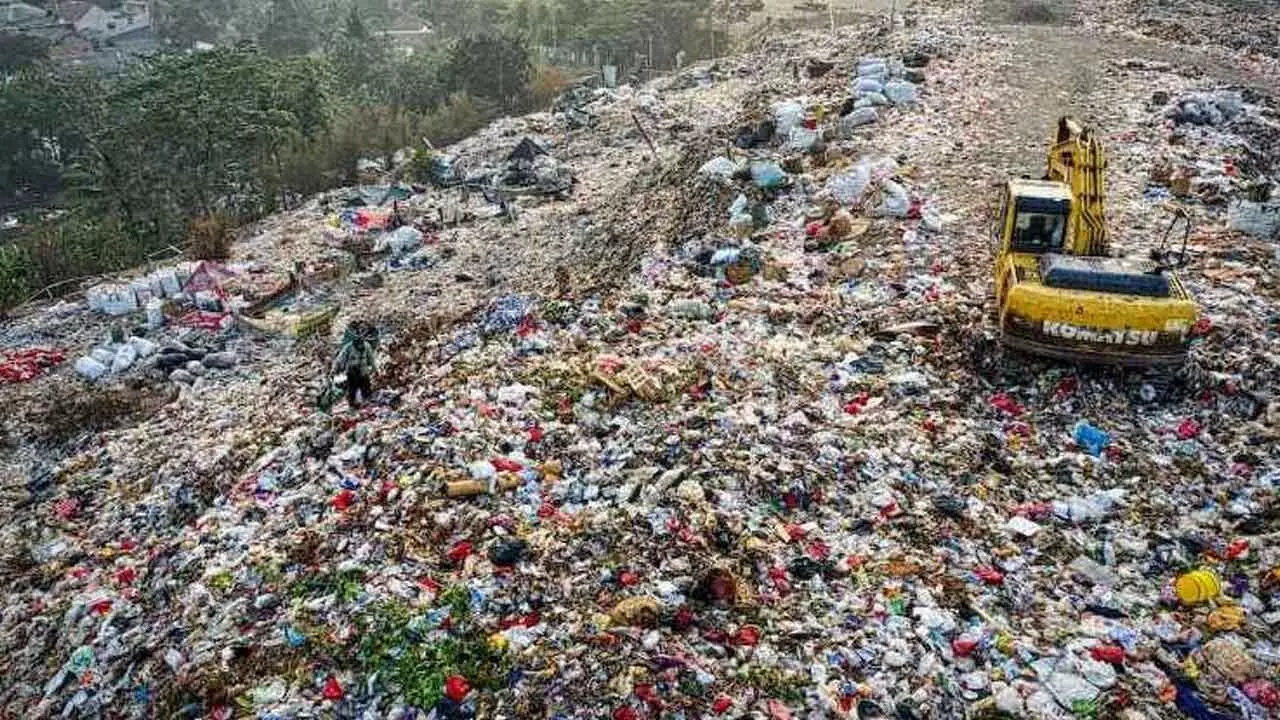Alarming Plastic Pollution
By restoring ecosystems, we can slow the triple planetary crisis: the crisis of climate change, the crisis of nature and biodiversity loss, including desertification, and the crisis of pollution and waste.” In addition, by doing so, the world can get closer to limiting global temperature rise in line with the 2015 Paris Agreement by increasing carbon storage, and reduce poverty and hunger, in line with the Sustainable Development Goals (SDGs)
Alarming Plastic Pollution

A major focus of this year's World Environment Day was the ongoing push for a global treaty to end plastic pollution. Countries are currently negotiating an international, legally binding agreement, with the next round of talks scheduled for August
Every year, 400 million tonnes of plastic are produced worldwide, according to the UN. Half of this plastic is designed to be used only once, and only 10 per cent is recycled.
Between 19 and 23 million tonnes of plastic waste leak into aquatic ecosystems annually, and without urgent action, this figure is expected to rise by 50 per cent by 2040.
Plastic pollution is contaminating every corner of the planet, threatening ecosystems, wildlife, and human health. Microplastics are found in food, water and air, with the average person estimated to ingest over 50,000 plastic particles each year, and far more when inhalation is included.
If the climate crisis goes unaddressed, with plastic pollution as a major driver, air pollution levels exceeding safe thresholds could rise by 50 per cent within a decade. Meanwhile, plastic pollution in marine and freshwater environments may triple by 2040.
To rally momentum, the UN Environment Programme (UNEP) led the 52nd annual World Environment Day on 5 June, the world’s largest platform for environmental outreach. This year’s commemoration was hosted by Jeju, Republic of Korea, under the theme #BeatPlasticPollution. Since launching in 2018, the UNEP-led campaign has advocated for a just and inclusive transition away from plastic dependency.
The day brings together governments, businesses, communities, and individuals in a shared mission to protect and restore the planet, while advancing progress towards the Sustainable Development Goals (SDGs), especially those linked to climate action and sustainable consumption.
A major focus of the day was the ongoing push for a global treaty to end plastic pollution. Countries are currently negotiating an international, legally binding agreement, with the next round of talks scheduled for August. UN Secretary-General António Guterres called for an “ambitious, credible and just agreement” that addresses the full lifecycle of plastics, reflects community needs, aligns with the SDGs and is implemented quickly and fully.
UNEP Executive Director Inger Andersen echoed the call, urging nations to unite behind innovative solutions and alternatives to plastic use. World Environment Day serves as a catalyst for action, driving attention toward the UN Environment Assembly later this year – where hopes are high that nations will finalise concrete steps to curb plastic pollution and address the broader climate emergency.
'Triple Planetary Crisis'
In a message marking Wednesday’s World Environment Day, UN Secretary General António Guterres emphasized that countries “must deliver” on all their commitments to restore degraded ecosystems and land, and on Kunming-Montreal Biodiversity Framework, the global agreement to protect biodiversity. “They must use their new national climate action plans to set out how they will halt and reverse deforestation by 2030. And we must drastically scale-up finance to support developing countries to adapt to violent weather, protect nature, and support sustainable development.”
The UN chief further highlighted that prompt and effective action makes economic sense.
“Every dollar invested in ecosystem restoration creates up to thirty dollars in economic benefits,” he said.
Failure to curb runaway pollution, climate chaos and biodiversity destruction are clear for all to see. Healthy, fertile lands are transforming into deserts, thriving ecosystems into dead zones and rising carbon dioxide emissions.
“That means crops failing, water sources vanishing, economies weakened, and communities endangered – with the poorest hit hardest … It is time to break free,” the UN chief said. “We are Generation Restoration. Together, let us build a sustainable future for land, and for humanity,” he added.
Inger Andersen, Executive Director of the UN Environment Programme (UNEP), called on everyone to join the global movement on putting those words into action. “By restoring ecosystems, we can slow the triple planetary crisis: the crisis of climate change, the crisis of nature and biodiversity loss, including desertification, and the crisis of pollution and waste.” She said. (news.un.org)

